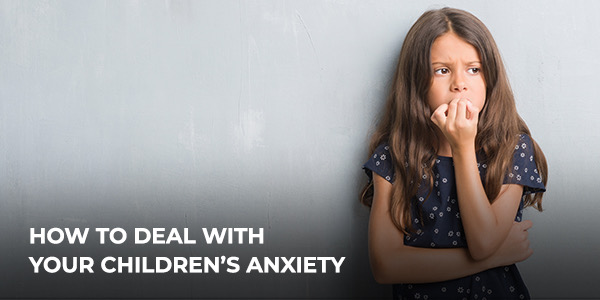
According to Danny Pine, one of the world’s top anxiety researchers, one in five children experience anxiety issues by the time they reach adolescence.
As parents, you have a big role in helping them cope with it. Take small steps by listening to your child, validating their feeling of discomfort, and helping your child with coping mechanisms.
Here are some steps you can consider on how to deal with your child’s anxiety.
- Lookout for Physical Signs of Anxiety
Children may hide their fears and sometimes show physical signs like tiredness, headache or stomach ache regularly. Observe them and try to find the root cause with the help of a professional. Though children’s anxiety issues are common, get professional help when needed.
- Help your Child Relax
It’s always better to calm your child down before trying to find out why they’re anxious. Bombarding your child with questions immediately could cause their anxiety to worsen. Pacify them, and provide a safe space for them to confide in you about their fears.
- Make them Aware
When your child is upset don’t try to remove him or her from the situation. Be with them and make them aware that sometimes life can be difficult and scary. Just push a little and tell them that they are going to face it anyway. This way you can help your child manage anxiety.
- Remember to Stay Calm
Children take many cues and mirror the behavior of the adults around them. As parents, you should stay calm when you know that your child is anxious. For example, on the eve of a game or match finals, ask him or her, “how do you feel about the coming match?” Your voice and body language should reflect confidence. This can help them stay calm as well.
- Avoid Build-up
When the wait for an important event is long, it’s quite natural to get sweaty palms. As far as possible, help your child by not going into a long discussion about the forthcoming event. Talk them through the anxiety by diverting their attention or challenging anxious thoughts.
- Respect Their Feelings
An anxious child needs emotional support and you need to respect their feelings. The reasons for their anxiety may seem silly to you, but it’s big deal for them. Be empathetic and remind them you’re there to help face their fears together.